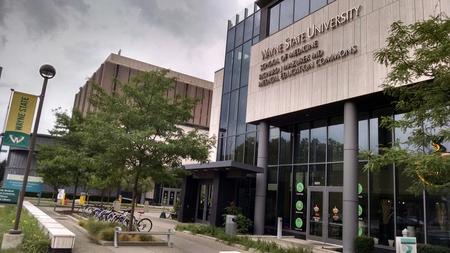Wayne State Researchers Battle Lingering Effects of Syrian Civil War
Researchers from Wayne State University’s School of Medicine say some non-traditional forms of treatment are helping lessen the mental impact of the Syrian civil war on refugees.


For more than a year the Stress Trauma and Anxiety Research Clinic at Wayne State University has worked with Syrian refugees on the topic of mental health, gathering information and attempting to reduce negative symptoms. The team of doctors, many of whom are refugees themselves, say the project has found success in many areas. And it is fulfilling a need for specialized treatment.
The researchers discovered that nearly half of adults fleeing the Syrian conflict screened positive for anxiety and depression. About a third of the refugees show signs of post-traumatic stress disorder (PTSD). While project leader Arash Javanbakht says parents seem to buffer the effects of PTSD from reaching their children, they’ve found that 80 percent of those kids still experience separation anxiety.
“Which is important because, as an immigrant, the person needs to be able to explore and learn about a lot of new conditions,” Javanbakht says. “And when the person has separation anxiety, which means they are very nervous getting away from their parent, that makes it difficult.”
Javanbakht says researchers found that symptoms in children often reflect those of their mother. But he says traditional therapy methods are not viable options for the refugees.
“We don’t have enough sources of therapy even for English-speaking people. When it comes to people who know the culture and language it would be even more scarce. And when it comes to medication (the) side effects would be a difficulty with the Middle Eastern population,” he says.
The team has developed a program for refugee mothers and their children. They engage mothers with a yoga program while providing art, dance, and movement therapy for the kids. After about 10 sessions the data showed that symptoms of anxiety and depression decreased on all fronts.
On a personal level, Javanbakht says he feels the work has helped to humanize the refugees, allowing people to see them as more than just mere statistics.
“It makes me very excited to see how those kids who came in with high levels of distress and anxiety are laughing and smiling, running around and playing.”
That success is allowing the team to expand its work and launch a version of the therapy program in elementary schools across Oakland County. They’ve also collected data to learn more about how genetics may impact symptoms of trauma, which Javanbakht says has not been tested in the Middle Eastern population.
